100 Days Since Article 370 Was Abrogated: 11 Developments In Jammu And Kashmir thenewsminute.com
November 12 marks 100 days since the abrogation of Article 370 in Jammu and Kashmir. Article 370, which had accorded special status to Jammu and Kashmir in India, allowing it to draft its own Constitution, was abrogated by the ruling BJP-led government on August 5, 2019.
Over three months since, the abrogation has generated a lot of conversation, and controversy, especially over the communication blackout that had been imposed by the Union government for over two months in many areas of Kashmir.
Here are 11 developments that have taken place in 100 days after the abrogation of Article 370:
1. The Jammu and Kashmir Reorganisation Act, 2019, passed by the Indian Parliament on August 5, received Presidential assent on August 9, 2019. It bifurcated the state into two union territories (UT) – Jammu and Kashmir, and Ladakh. While the UT of Jammu and Kashmir will have a Legislative Assembly, Ladakh (including Leh and Kargil districts) is under the administration of a Lieutenant Governor (L-G).
2. On October 31, Radha Krishna Mathur was sworn-in as the first L-G of Ladakh. He is the former Chief Information Commissioner of India (CIC) and retired from that position in November 2018. Among the various portfolios, he has held is that of a Union Defence Secretary, MSME Secretary of India, and Chief Secretary of Tripura.
3. On the same day, 1985-batch Gujarat cadre IAS officer Girish Chandra Murmu took oath as the L-G of Jammu and Kashmir at the High Court. Murmu was the Principal Secretary to Prime Minister Narendra Modi when he was Gujarat Chief Minister.
4. The former state of Jammu and Kashmir was officially bifurcated into the designated union territories on November 1.
5. The communication blackout imposed in the former state of Jammu and Kashmir meant that there were few ways to verify what was actually happening on the ground in the Valley, especially amidst reports of increased military deployment, checking and detention. It was not until October that the Union government decided to ease the blackout. On October 12, it was announced that postpaid mobile services would be restored in Kashmir. As of October 28 – around a fortnight after postpaid services were restored – prepaid cell phone services were still barred.
6. Political leaders in Jammu and Kashmir were detained or placed under house arrest in the lead-up to the abrogation of Article 370, and even after it. In October, three leaders – Yawar Mir (formerly in People’s Democratic Party), Noor Mohammed (National Conference worker), and Shoaib Lone (Congress District President in North Kashmir) – were released. However, former Chief Ministers Mehbooba Mufti and Omar Abdullah are still under detention. Former Chief Minister and Lok Sabha MP Farooq Abdullah’s detention under the Public Safety Act was extended to three months.
7. Several petitions were filed in the Supreme Court challenging the decision to strip Jammu and Kashmir of its special status. The first was reportedly filed by advocate ML Sharma. This was followed by political parties including National Conference (NC) and J&K People’s Conference who also filed similar petitions. There are a few other petitions as well.
8. The Supreme Court set up a five-judge Constitution bench to hear the petitions challenging the validity of the Union government’s move to abrogate Article 370. The bench consists of Justices N V Ramana, S K Kaul, R Subhash Reddy, B R Gavai and Surya Kant. On October 24, the apex court asked the Indian government how long it was planning to continue restrictions on Jammu and Kashmir.
9. The media in Jammu and Kashmir have been facing major issues due to the communication blockade. According to some investigations, the journalists had to visit a government-run, scantily equipped media center in Srinagar to use the desktops in order to work. Journalists in the Valley were also reportedly facing threats if they published narratives that were critical.
10. A delegation of opposition leaders – comprised of leaders from Congress, CPI(M), CPI, DMK, NCP, JD(S), RJD, LJD and the TMC – attempted to visit Jammu and Kashmir in August to take stock of the situation on ground. However, the delegation, that including Congress leader Rahul Gandhi was not allowed to leave the Srinagar airport, and was compelled to return to Delhi. The delegation criticised the Indian government and its claims of ‘normalcy’ in the Valley. However, just a month later, the Union government allowed 23 European Union MPs to visit Kashmir – a move which drew a lot of criticism. Most of these MPs were from right-leaning political parties. The Congress called it a “diplomatic blunder”.
11. Railway services were restored in Kashmir on November 12, 100 days after the abrogation of Article 370. According to news agency PTI, some mini buses were also plying in Srinagar, including private transport.
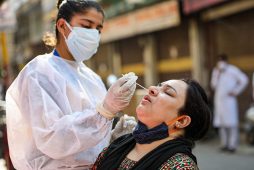
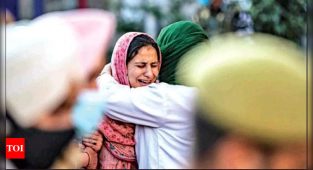


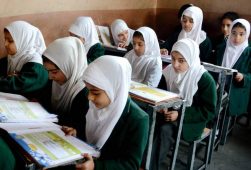
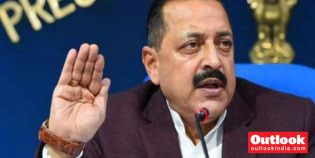


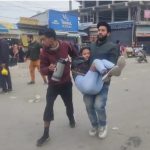
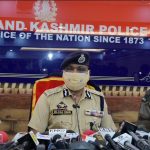

Leave Your Comment